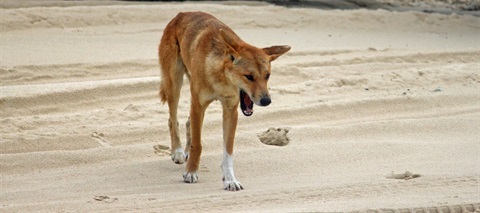
MidCoast Council is continuing to work closely with other local agencies and university experts to address increased activity and concerning behaviour from dingoes in the Hawks Nest area.
The dingo/wild dog management procedure adopted by Council, is based on a risk management model that has been successful on Queensland's Fraser Island.
Following numerous reports over the summer holidays of harassment and in some instances attacks on pets, by a particular group of dingoes, Council and its partners have begun implementing the procedure.
Most recently, the team has been undertaking surveillance and monitoring of the animals to determine the need for targeted controls.
"We work closely with National Parks and Wildlife Service and Hunter Local Land Services in the monitoring and assessment of dingoes in our region," explained Council's Senior Ecologist, Mat Bell.
"We're also engaging with experts from the University of NSW to explore ways we can manage risks associated with dingoes in domestic areas, without the need for lethal control.
"But we have a duty of care to our community and with the number of complaints, and reports of attacks on domestic animals, it's clear we need to take action in the area."
Mat emphasised that there are no plans for a widespread 'cull', as has been reported on public Facebook pages this week.
"That's not what our management plan is about. Dingoes/wild dogs can and have lived around the area with no issues, the problems stem from people feeding them, which leads to behavioural changes," he explained.
"Dingoes are naturally wary and scared of people, which is how it should stay. Once they are taught to take food from a person, this changes the way they hunt and leads to them becoming territorial and dominant around the community, as we've seen."
The message is clear, feeding a dingo/wild dog, is not helping the animal. Penalties apply for anyone who is caught doing this.
"Dingoes are highly capable hunters, but because they're naturally lean, people think they're undernourished. Education is key, we need the community and visitors to the area to understand how important it is that these animals are avoided.
"Ultimately it's what's best for everyone."






